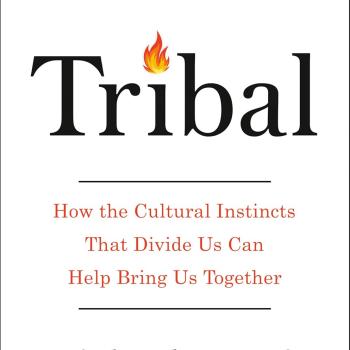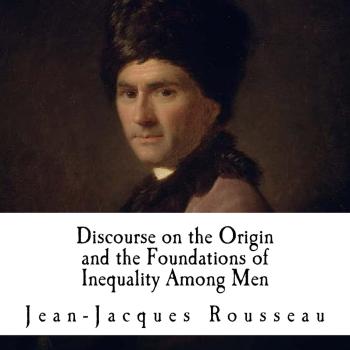One thing that gets me excited is thinking about the way that an eastern (e.g. Chinese) worldview can contribute to the task of theology. Stephen Bevans speaks for many when he writes, “There is no such thing a ‘theology’; there is only contextual theology” (Models of Contextual Theology, 2008; p. 3). The Bible is a book for all of humanity. Therefore, we should expect the Bible to speak in ways and about topics that typically resonate more with Easterners than Westerners. That being the case, I urge that we do what I call exegetical contextualization, intentionally interpreting Scripture through the lens of a particular culture. (More on this in upcoming blogs).
In that spirit, I begin a series of reflections on the new covenant from a Chinese context. Don’t expect a rehashing of the countless books and articles on the subject. I simply want to highlight both the significance and a few implications of the new covenant as seen from a Chinese perspective. These are just suggestive, so please feel free to dialogue in the comments. Much of what is called “theology” is in fact “western theology.” That is not a criticism; the statement simply highlights the critical role western culture has served in helping us all interpret Scripture. I hope non-western cultures, like those of East Asia, will increasing contribute to a broader understanding of the Bible.
The new covenant is one way the Old Testament foretells the gospel. Sadly, many people are unfamiliar with it. The central passage on the new covenant is Jer 31:31–34.
“Behold, the days are coming, declares the LORD, when I will make a new covenant with the house of Israel and the house of Judah, 32 not like the covenant that I made with their fathers on the day when I took them by the hand to bring them out of the land of Egypt, my covenant that they broke, though I was their husband, declares the LORD. 33 But this is the covenant that I will make with the house of Israel after those days, declares the LORD: I will put my law within them, and I will write it on their hearts. And I will be their God, and they shall be my people. 34 And no longer shall each one teach his neighbor and each his brother, saying, ‘Know the LORD,’ for they shall all know me, from the least of them to the greatest, declares the LORD. For I will forgive their iniquity, and I will remember their sin no more.’” (ESV)
31 耶和华说,日子将到,我要与以色列家和犹大家另立 新约, 32 不像我拉着他们祖宗的手,领他们出埃及地的时候, 与他们所立的约。我虽作他们的丈夫,他们却背了我的约. 这是耶和华说的. 33 耶和华说,那些日子以后,我与以色列家所立的约乃是这样,我要将我的律法放在他们里面,写在他们心上. 我要作他们的神,他们要作我的子民. 34 他们各人不再教导自己的邻舍和自己的弟兄说, 你该认识耶和华, 因为他们从最小的到至大的都必认识我。我要赦免他们的罪孽, 不再记念他们的罪恶. 这是耶和华说的.” [和合本]
Other relevant passages that may interest you include Ezek 36:26–27; Luke 22:20; Hebrews 8, 10; 2 Cor 3. In each post, I’ll list one or two of its key statements and then discuss.
[Verse 31] “I will make a new covenant with the house of Israel and the house of Judah.” [我要与以色列家和犹大家另立新约]
Interestingly, even though Jeremiah says “Israel” and “Judah,” the NT authors still apply this covenant to Gentiles. That is to say, the new covenant is for the entire church (cf. 2 Cor 3; Rom 2; Luke 22, etc.). This observation is important for learning principles for biblical interpretation. We don’t want to over literalize the text, restricting the Bible’s every word and sentence such that the authors are bound by our own modern expectations of what and how they should speak. In a sense, over literalized interpretations are the opposite error of liberalism. Both overly restrict the text’s meaning so as to deny from the start that the author could have been speaking either figuratively or historically. We must interpret Scripture with Scripture. The author’s language depends on context. Context is king.
In the OT, the nomenclature, “Israel,” refers to God’s people. In fact, in the NT, we find out that Gentiles also belong to God’s people, reckoned as Abraham’s offspring (Rom 4; Gal 3).
Notice verse 33, “And I will be their God, and they shall be my people.” [我要作他们的神, 他们要作我的子民]
The new covenant is inherently collectivistic in nature. Salvation is not merely an individual concept. People being saved means they gain a new identity. They belong to a new group, a new family, a new kingdom. Real faith means loyalty to God. God, through the new covenant, promises to identify with us. Because he changes our hearts, we also identify with him. God and we share in the same honor and shame. We come under God’s name.
People may get nervous about mixing collectivism and soteriology, but this is unfounded. Collectivistic readings need not imply salvation comes simply by ethnic identity, etc. Instead, a collectivistic perspective highlights a few key aspects: first, we are saved into a community; second, this will mean rejection and leaving from some prior community. One of the church fathers said there was no salvation outside the church––this statement has been (mis)taken a number of ways. At its best, the idea is right. Why? Loyalty to God is inseparable from loyalty to his people. He is not merely my God but our God. To forsake his people is to forsake God. Protestants, evangelical, and missionaries are prone to separate soteriology (salvation) from ecclesiology (the church). This is problematic on various levels. Conversion is an exchange of social identities.
We therefore do all we do knowing that the reputation of the Church and ultimately its head, Christ, is at stake as we make moral and strategical decisions. There is no “Jesus and me.” There is Jesus and us.
How does this affect our life and those with whom we share the gospel? Here are a few questions to ask for reflection:
1. With whom do you/we identify? (Who do you admire? want approval from? seek to please?)
2. To whom are you loyal?
3. Is your group head faithful?
These are fundamental gospel questions. Particularly in a Chinese setting, the biggest stumbling block is one’s own community (whether family, ethnic group, etc.). One’s relationships determine everything. The problems people must confront more concern loyalty, not legalism. Ultimately, we must think about and have others also consider the faithfulness and ability of the group head with whom they identify. Is is a boss, a president, a parent,…who? Among whom do you belong and how is that expressed in various ways within one’s social network?
















